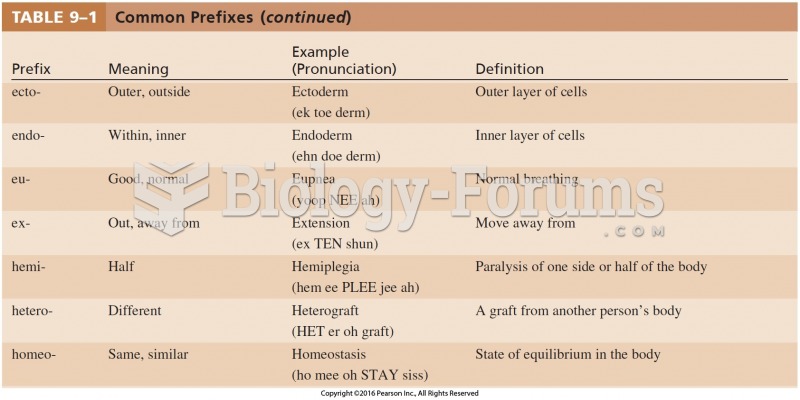|
|
|
Though newer “smart” infusion pumps are increasingly becoming more sophisticated, they cannot prevent all programming and administration errors. Health care professionals that use smart infusion pumps must still practice the rights of medication administration and have other professionals double-check all high-risk infusions.
Approximately 25% of all reported medication errors result from some kind of name confusion.
The immune system needs 9.5 hours of sleep in total darkness to recharge completely.
Despite claims by manufacturers, the supplement known as Ginkgo biloba was shown in a study of more than 3,000 participants to be ineffective in reducing development of dementia and Alzheimer’s disease in older people.
Blood is approximately twice as thick as water because of the cells and other components found in it.







